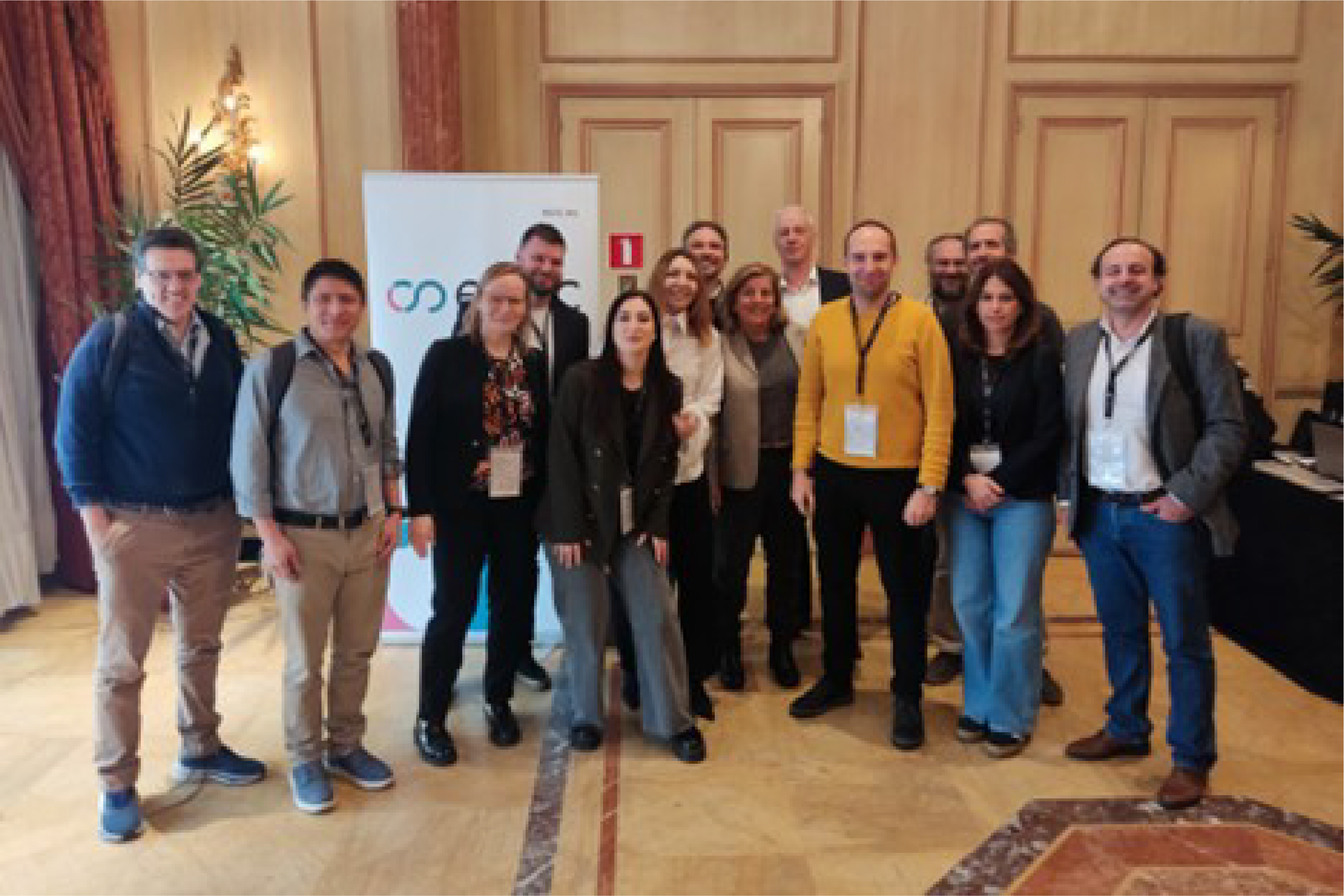National Pilot Interview Serbia

Read the National Pilot Interview from Serbia and explore all the progress of OSTrails pilot studies. Check the latest on their national activities and learn how they’re progressing with the integration of open science and research assessment. This month we had the pleasure of speaking with Obrad Vučkovac from the University of Belgrade, “Vinča” Institute of Nuclear Sciences - Library department. Enjoy!
 - Obrad Vučkovac
- Obrad Vučkovac
"The Serbian research ecosystem, particularly its funding bodies and policymakers, stands to benefit significantly from the OSTrails national pilot. One of the biggest challenges in advancing Open Science practices lies in the effective planning and assessment of research. The introduction of tailored, machine-actionable DMP templates, integrated with the national CRIS system and institutional repositories, alongside automated FAIR assessment tools, will enhance the quality and compliance of research outputs. These efforts are expected to strengthen Serbia's position within the EOSC and foster a more robust Open Science culture nationwide."
-Can you briefly introduce your organisation(s)? How does it/do they contribute to EOSC?
Established in 1808, the University of Belgrade is the oldest and largest higher education institution in Serbia and one of the leading academic institutions in South-East Europe and the Mediterranean region. Dedicated to promoting Open Science practices, the University of Belgrade embraced Serbia’s national Open Science policy in 2019 and is an active member of the EOSC Association. The University is actively participating in the OSTrails national pilot through its Computer Centre RCUB (in Serbian: Računarski centar Univerziteta u Beogradu) and the Library of the “Vinča” Institute of Nuclear Sciences. This initiative will involve collaboration with three additional RPOs to assess their institutional repositories and train their researchers. RCUB is the leading service provider of institutional repositories in Serbia, operating more than forty repositories. All RCUB’s repositories are designed in compliance with the OpenAIRE’s Guidelines and integrated with the OpenAIRE Research Graph. Several repositories were onboarded at the EOSC Marketplace. It serves as the OpenAIRE National Open Access Desk (NOAD) and has been involved in numerous Open Science projects and initiatives, including GEANT, BE-OPEN, OpenAIRE Advance, and NI4OS-Europe. The “Vinča” Institute of Nuclear Sciences’ Library represents the growing community of research librarians in Serbia, who have been active in managing institutional repositories and promoting Open Science practices, particularly in areas such as Research Data Management, FAIR and Open Data, and Open Access. Research librarians in Serbia are positioning themselves as leaders and advocates for Open Science by offering educational activities and providing research support to facilitate the publication of FAIR and open research results. Some of these initiatives have even been awarded through Horizon Europe-funded projects.
-What are you most excited about in OSTrails? What are you looking forward to?
The Serbian national pilot aims to address some of the current challenges researchers in Serbia face when practicing Open Science activities, particularly those mandated by the National Policy on Open Science and by the Science Fund of the Republic of Serbia, the national research funder. One pressing issue is the absence of a proper DMP template in the Science Fund’s research calls. The OSTrails national pilot aims to address this by developing a machine-actionable DMP template aligned with FAIR principles, enabling the Science Fund to better integrate and utilize DMPs in their workflows. Additionally, the pilot will address the need for a FAIR assessment tool, which is crucial for evaluating research outputs in line with the mandated FAIR principles. This tool is essential for fostering Open Science practices and ensuring that data, software, and research outputs align with the broader goal of integrating into EOSC. Projects and activities like this are expected to significantly influence researchers in adopting Open Science practices. This national pilot will address all current issues and fill the gaps necessary to fully embrace the culture of Open Science in Serbia.
-How is planning, tracking and assessing research being realised in your country/scientific domain?
The Science Fund of the Republic of Serbia mandates Data Management Plans (DMPs) but lacks a suitable template, leaving researchers without effective guidance. While previous initiatives, including those by the EOSC Secretariat, have promoted DMP culture and developed a template in Argos DMP platform, it remains vague and insufficiently tailored for specific disciplines, particularly in managing sensitive data. This national pilot will address these gaps by creating two machine-actionable DMP templates in Argos—one for Science Fund applicants and another for University of Belgrade PhD students—aligned with Science Europe’s guidelines and FAIR principles. Additionally, guidelines for manual DMP evaluation and a FAIR assessment tool will be integrated. By 2023, all research outputs in Serbia are tracked via the national CRIS, eNauka, which automatically aggregates outputs from institutional repositories, library OPAC catalogues, and CrossRef and researchers' ORCID. The planned deposition of DMP into institutional repositories through Argos and integration with other digital entities is expected to enhance overall data management practices by promoting greater transparency and usability of research outputs. Although both the national Open Science policy and the national research funder require adherence to FAIR principles for research data and outputs, there is currently no recommended or customized service for FAIR assessment. DMPs are evaluated manually, without clear guidelines on quality assessment or FAIR compliance. The existing national regulation for the assessment of research outputs primarily focuses on research articles, monographs, and similar publications, and does not adequately address the assessment of research data, software, or Open Science activities. The integration of automated FAIR assessment metrics, resulting from the OSTrails project, is expected to significantly improve the evaluation process, particularly in the project planning phase, by providing early insight into the compliance of research outputs with FAIR principles.
-Can you provide some details on your pilot's main actors, services and priorities? How will your pilot adopt the results of OSTrails?
The implementation of Serbia's national Open Science policy in 2018 mandates that research funded by the Ministry be publicly accessible and deposited in trusted repositories. This policy led to the rapid establishment of institutional repositories across research institutions in Serbia, with the RCUB playing a crucial role in developing the infrastructure. RCUB-developed repositories feature clear policies, long-term preservation, and integration with the OpenAIRE Research Graph. Notably, the DAIS repository of the Serbian Academy of Sciences and Arts received the Core Trust Seal certificate in 2022. RCUB's expertise in infrastructure design and standards has been crucial to building the national CRIS, eNauka, launched in 2023. The librarian community is familiar with the Argos platform for writing and publishing DMPs, thanks to an EOSC Secretariat-funded initiative in 2020 aimed at creating a model for local capacity building in research data management, tailored to the needs of non-EU Western Balkans countries. This project produced an initial DMP template for the Science Fund, complete with guidelines. As the main priority in the OSTrails national pilot, we will continue developing Argos by designing customized, machine-actionable DMP templates. Institutional repositories and the eNauka CRIS will be enhanced with new digital object types to accommodate machine-actionable DMPs and to integrate current repositories and machine-actionable DMP tools with the OpenAIRE Graph and other SKGs. The Serbian national pilot will also support the implementation of RDM policies, promote FAIR principles, and evaluate their application in digital objects.
-Ongoing activities and Next Steps?
Though the national pilot officially begins in the 18th month of the OSTrails project, preparatory work is already underway. One of our key tasks is designing a machine-actionable DMP template for the national funder. We held an initial meeting with the Science Fund to present our ideas for the template and the evaluation guidelines, which received a positive response.
Before the pilot’s official start, the following steps are planned:
a) Identifying research groups for assessing the DMP templates.
b) Promoting the OSTrails project and our involvement in the national pilot at the “Open Science Days” conference, organized by the University of Belgrade in November 2024.
c) Discussing the design of the DMP template for PhD students with the University representatives.
We expect this national pilot to build on our previous efforts and significantly improve the adoption of FAIR principles and research practices in Serbia. A new national Open Science policy is forthcoming, which will cover more aspects of Open Science, such as Research Data Management, Open Data, Open Software and Hardware, and Open Infrastructures. The OSTrails project results are expected to significantly impact on the implementation of these new policies. By thoughtfully implementing machine-actionable and integrated DMPs in research processes, tracking and connecting research results with SKGs, and assessing digital objects for FAIRness, Serbian science could see substantial improvements in research support.



